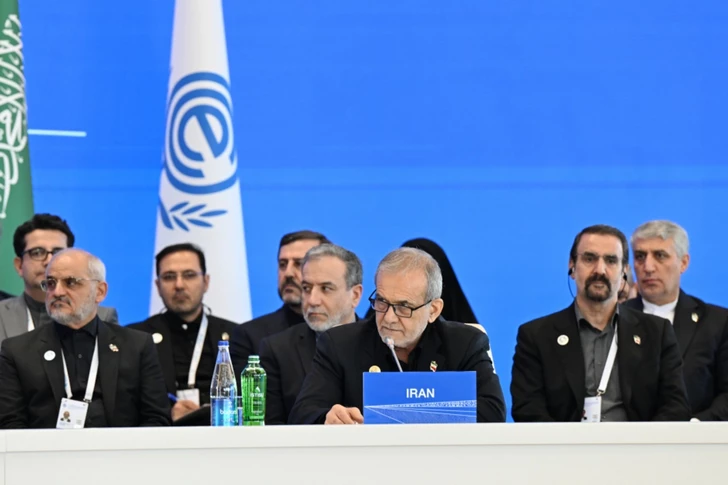A recent statement by Iranian President Masoud Pezeshkian regarding the Azerbaijani Turkic language — and his official visit to Azerbaijan — has triggered a storm of criticism from pan-Iranist and anti-Turkic circles within Iran’s political elite.
In remarks made last week and covered by the Free Iran YouTube channel, President Pezeshkian said:
“The language in which Shahriar spoke and wrote is Turkic. It makes no sense to get angry when someone recites poetry in that language.”
Stay Ahead with Azerbaijan.usGet exclusive translations, top stories, and analysis — straight to your inbox.
The president’s defense of the Azerbaijani Turkic language — spoken by millions in Iran, including himself — was seen as a bold move in a country where hardline factions have long sought to suppress non-Persian cultural expression. Shahriar, a legendary poet from Iranian Azerbaijan, remains a symbolic figure for the Azerbaijani Turkic-speaking community.
Backlash from Iranian Hardliners
The backlash was swift. Critics — mainly pan-Iranist ideologues and proponents of the “Iran-Shahr” (Imperial Iranian) narrative — have condemned Pezeshkian not only for his use of the Turkic language but also for what they see as symbolic overtures toward Baku.
This includes the president’s visit to Khankendi (known in Armenia as Stepanakert) on July 4 to attend the 17th summit of the Economic Cooperation Organization (ECO) — his first foreign trip since the brief but intense Iran-Israel conflict in June. Pezeshkian was warmly received by Azerbaijani President Ilham Aliyev, and their informal, cordial interaction has drawn fire from nationalist circles in Tehran.
A Visit Framed as Betrayal
Pro-regime media and political commentators have gone as far as labeling the visit a “betrayal,” arguing that Azerbaijan supported Israel during the recent conflict — an unsubstantiated claim that has been repeatedly echoed in Iranian media with anti-Azerbaijani and anti-Turkic undertones.
Some hardline outlets and analysts even fixated on Pezeshkian’s body language during the trip, particularly a moment when he stood up upon Aliyev’s arrival at an informal meeting. This gesture — common in diplomatic settings — was twisted into a sign of submission or ignorance of protocol, with critics accusing the president of “humiliating” Iran on the international stage.
A Broader Cultural and Political Struggle
Experts note that this campaign against Pezeshkian reflects long-standing efforts by some factions to marginalize Iran’s sizable Azerbaijani Turkic population, both culturally and politically. The fact that Pezeshkian speaks openly in his mother tongue and engages with neighboring Azerbaijan challenges the dominant nationalist narratives favored by these groups.
For many Iranian Azerbaijanis, however, Pezeshkian’s linguistic pride and diplomatic outreach are seen as steps toward recognition and inclusion — and his presidency as a rare opportunity for their voices to be heard.
As tensions rise, observers warn that the cultural and geopolitical fault lines exposed by this controversy could further polarize Iran’s domestic landscape — particularly if Pezeshkian continues to push against the deeply entrenched centralist ideologies that have long dominated Tehran’s policies toward its ethnic minorities.


